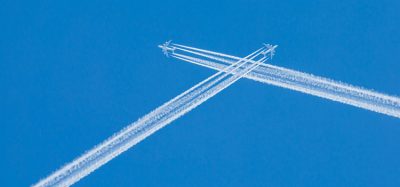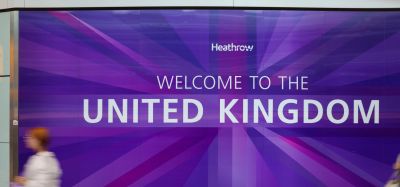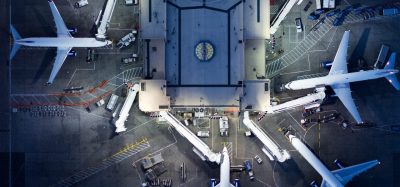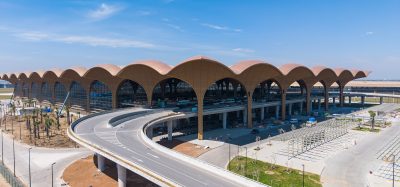Leading on climate change
Posted: 1 December 2006 | Sir Richard Branson, Chairman, Virgin Atlantic | No comments yet
I am the first to admit that I am only a recent convert to the need to tackle climate change. I was inspired after meeting the former US Vice-President, Al Gore, who convinced me that I could play a part in convincing others that it was time for urgent change.
I am the first to admit that I am only a recent convert to the need to tackle climate change. I was inspired after meeting the former US Vice-President, Al Gore, who convinced me that I could play a part in convincing others that it was time for urgent change.
Why have I so strongly set out my green ambitions for the travel industry? Because, from the books I’ve read and the scientists I’ve met, I am certain that the world is heading for environmental catastrophe if we carry on as we are, relying on fossil fuels to improve our daily lives. Our children and grandchildren will never forgive us for doing nothing to stop climate change.
I am an airline owner and, yes, airlines have done their bit to cause environmental damage. Now we have to do something about it. It’s not acceptable for anyone in the aviation industry to sit back and claim nothing can be done, or should be done, to protect our future generations. That’s why I have recently written to colleagues at other airlines, aircraft manufacturers, engine makers and airport owners to work with them to create an industry body that can start to make a real difference in the short-term, and tell everyone what the industry is doing to tackle climate change. There has been an excellent response to the notion of forming a body which can add to the long-term studies being carried out by the Sustainable Aviation Group, of which Virgin Atlantic is a member. Before now, the aviation industry has been too slow at demonstrating what it is doing to help prevent environmental damage over the next five years.
Join us live: Shaping the Next Generation of Hold Baggage and Air Cargo Screening
Join us live for an insightful webinar on 11th December at 14:00 GMT, in collaboration with Smiths Detection, as we explore the strategic balance of operational efficiency, regulatory compliance, and sustainability in high-volume security environments.
This session offers a focused look into future-proofing your security strategy.
Key learning points
- Cost Reduction: Strategies to minimize bag travel time while simultaneously reducing operational costs.
- Regulatory Roadmap: Insights into the next wave of regulatory changes and their impact on future investment decisions.
- Sustainable Systems: Practical approaches to building sustainability into security systems and lowering the total cost of ownership (TCO).
- Scalable Solutions: Real-world examples of scalable systems supporting current airport growth and preparing for tomorrow.
Register now for expert insights, case studies, and actionable strategies on operational efficiency!
There are tangible benefits to moving quickly and reducing emissions. Saving fuel and therefore CO2 emissions will help the environment but will also reduce fuel costs, in turn helping passengers who will benefit from lower prices.
There are several initiatives which I recently outlined which can be worked on urgently. Firstly, we can cut CO2 emissions themselves. In May, while “on set” in Prague waiting to film a cameo role in the new James Bond film, Casino Royale, I was discussing with two of our pilots about the growing need for reducing the amount of fuel that airlines use. One of them, Captain Dave Kistruck, grabbed a piece of paper and started drawing what has since become known as a “starting grid”, which could be created at the world’s busiest airports. The grid is effectively a series of allocated parking bays close to the runway. Aircraft could be towed by electric tug from their stands, without their engines running, to these bays. It isn’t right in this day and age that some of our aircraft have to taxi for 70 minutes, for example at JFK Airport in New York, or even 30 minutes at Heathrow, wasting fuel and churning out CO2 emissions.
A “starting grid” also reduces congestion around stands, meaning aircraft that have recently landed wouldn’t have to wait, with their engines running, to get onto the stand. Aircraft arriving could also turn off their engines after five minutes and be towed to their stand, saving considerable extra CO2.
The technology exists today for towing aircraft efficiently, and airports in the US are starting to license electric tugs, thereby contributing to saving our planet. I am pleased to say that we are now working with Gatwick, Heathrow and Los Angeles airports on a planned “starting grid” trial, which we hope will be rolled out worldwide within a year. This is typical of the short-term measures which need to be applied if we are to make a difference to the amount of CO2 emissions produced by the aviation industry.
Towing aircraft closer to the runway has substantial implications for local communities too. They would benefit from much lower noise levels because of aircraft taxi-ing without their engines running, and from dramatically cleaner air on the ground.
There are other things we can do. Persuading airports, and air traffic controllers, to support Continuous Descent Approach for all landings would be a great start. CDA means pilots begin their descent from high altitude much earlier, leading to a slower and smoother approach. Virgin Atlantic pilots are trained this way.
Making air traffic control systems more efficient, especially in Europe, would erase tens of millions of tonnes of CO2 emissions. Aircraft don’t always fly direct, as the crow flies. They should be allowed to. But, arcane practices by some governments get in the way of environmental progress. It cannot be right that we have over 30 air traffic control systems in Europe. IATA, the International Air Transport Association, predicts that 12% of global CO2 emissions by aircraft could be saved if we created a single European sky. This would make operations so much more efficient, and it is now the urgent responsibility of governments to work towards a system that can improve journey times in the air and reduce carbon emissions.
At Virgin Atlantic, we are not just setting out a vision for the industry. We are getting our own house in order. As part of our sustainable aviation strategy, we are reducing the weight of each of our aircraft. We are painting the exterior of our planes with lighter paint, creating lighter fittings onboard, changing oxygen bottles from metal to carbon-fibre, and now using cargo bins made from lighter, but stronger carbon-fibre materials, rather than metal. We are even seeking to remove empty champagne and beer bottles, the contents of which have been drunk before leaving the stand, so they can be recycled before the plane leaves for its destination. These measures save fuel and reduce CO2 emissions further.
Finally, military airspace still exists as if the cold war is alive and well. Do we really need military exercises on the same scale as 20 years ago? Think of the huge amounts of fuel and CO2 emissions coming out of those military dinosaurs in the sky. Just think of the extra fuel commercial aircraft are using to avoid military training areas.
These are just several ideas which Virgin Atlantic has focused upon. With the aviation industry working together on environmental initiatives there will be plenty of other ideas, helping us all to channel our resources into alternative ways of flying our aircraft and manoeuvring them on the ground.
In the medium term, I am confident that we can find a solution to the fundamental issue we are dealing with – how to reduce our reliance on fossil fuels. Recently, I announced a $3bn commitment to renewable energy, and Virgin Group will be investing in and developing the fuel of the future. It is up to companies that have a stake in transportation businesses to develop the technology to achieve change. If we can invest in biofuels and make them popular, and also invest in other renewables which we plan to do, then that leadership will send an important psychological message to corporations around the world. Biofuel technology may take several forms, helping to power aircraft, trains and cars in the years to come. I passionately believe that we will find the answers.
Within two years, we need to have seen a dramatic shift in the aviation industry’s thinking and a substantial cut in emissions. Within 10 years, we need to move to all carbon composite aircraft, make the biofuel breakthrough, and begin designing aviation systems that are CO2-neutral or as near CO2-neutral as possible. Domestic air travel is twice as damaging as international air travel and yet there is a clean alternative. The train. People should now start to think twice before flying domestically (and to Paris and Brussels in the case of Eurostar).
We have seen, in recent months, leadership by politicians too. Arnold Schwarzenegger, the Governor of California, has ridden into power on a wave of popularity partly because of his strong stance on reducing CO2 emissions. His Global Warming Solutions Act forces companies to reduce their emissions to 1990 levels. Otherwise, they will be fined heavily. It is a powerful incentive to force change.
Climate change, and the complex issues surrounding it, cannot be solved by government alone. It has to be tackled by a combination of consensus, regulation, new ideas and technology, and economic incentive. It would not be worth our while developing biofuels, creating “starting grids”, and pursuing other initiatives, if we at Virgin were the only ones to eventually use them.
We do not have the luxury of time when it comes to climate change. Airlines, airports, air traffic controllers, and governments all need to act fast.
Join our free webinar: Transforming Airport Security – Innovation, Impact, and the Passenger Experience
The landscape of airport security is undergoing a profound transformation, driven by evolving threats, technology, and passenger expectations. This webinar focuses on how AtkinsRéalis has been transforming security processes at some of the world’s busiest airports with smarter, more adaptive solutions.
Date: 4 Nov | Time: 14:00 GMT
REGISTER NOW TO SECURE YOUR SPOT
Can’t attend live? No worries – register to receive the recording post-event.

















